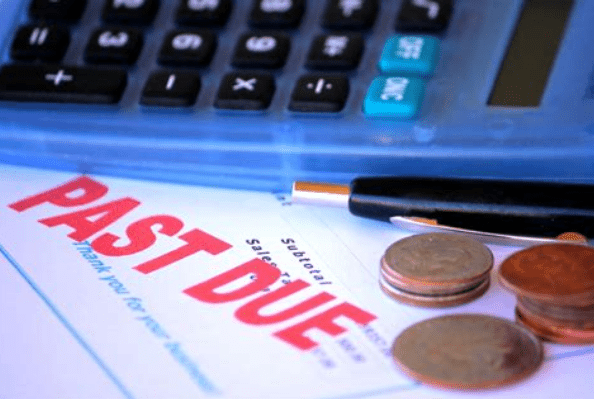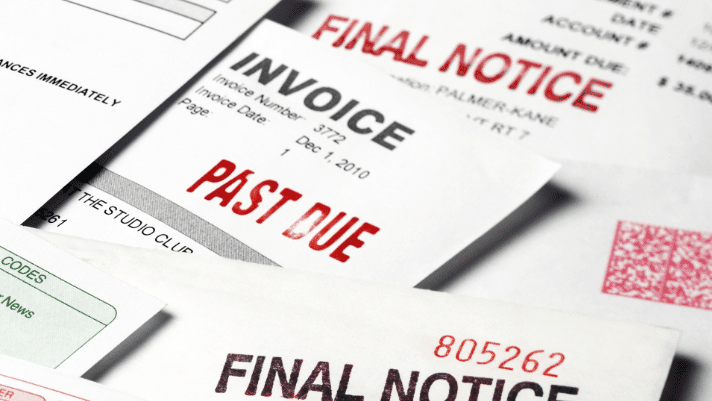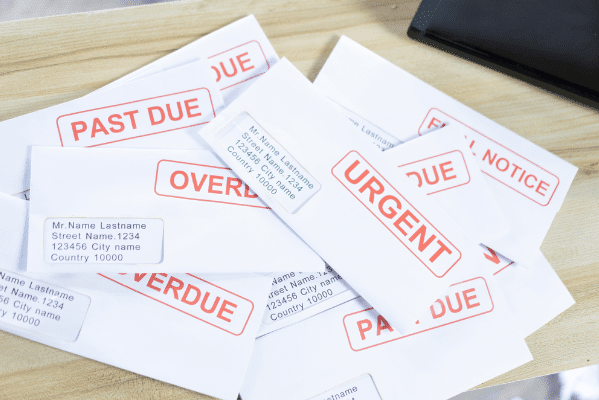In Florida, you’ve got a 20-day window to respond to a debt lawsuit before risking a default judgment. Crafting and filing an Answer to the Summons and Complaint is your best course of action. Make sure to address each claim against you and assert your affirmative defenses within your Answer document. ZumaZip can assist you in drafting and filing your Answer for your Florida lawsuit in just minutes. Let’s ensure your response is strong and timely!
Getting sued for a debt can indeed be overwhelming. But fear not! This article aims to ease the process by guiding you through how to respond to a debt lawsuit and answer a summons for debt collection in Florida.
Here, you’ll discover valuable insights tailored to filing in the Sunshine State. We’ll cover state-specific deadlines, necessary forms, and other crucial details to help navigate this challenging situation with confidence. Let’s make this process a little less daunting together!
Not sued yet? Send a Debt Validation Letter to get collectors off your back.
In Florida, you’ve got a tight deadline of 20 days to respond to a debt lawsuit. This countdown starts the day after you’re served with the Summons and Complaint, including weekends.
You have 20 days to respond to a debt lawsuit in Florida
For instance, let’s say you, like Sandy, receive the court documents on a Friday, March 11th. That means you have until Thursday, March 31st, to submit your written response. Sandy manages to file her Answer on March 31st, the final day within the deadline, and it’s accepted.
It’s worth noting that many courts are understanding, especially if you’re representing yourself (pro se). They might grant a bit of extra time for response in such cases. So, if you’re navigating this process solo, there could be some flexibility to meet the deadline.
If you already responded to the lawsuit, go here to hire an attorney to show up for you in court.
Use this sample Answer to respond to the Complaint in Florida
If you aren’t sure how to write an Answer, ZumaZip can help. ZumaZip’s Answer form makes it easy to draft and file a response to your Florida debt lawsuit. You can fill out the form in a matter of minutes by answering a few simple questions on ZumaZip’s site. ZumaZip’s Answer is created by professional attorneys and has protected consumers from losing over $100 million in predatory debt lawsuits.
Florida also has many resources for defendants who are representing themselves in a credit card debt lawsuit. Most courts even have forms you can fill out to respond to the suit.
Here’s an example of one of ZumaZip’s Answer forms.
Answer the Summons without hiring an attorney
Responding to a debt lawsuit doesn’t necessarily require hiring an attorney. You have the option to represent yourself, which can save you both money and time.
Drafting and filing your written Answer doesn’t have to be daunting, especially with tools like ZumaZip at your disposal. In less than 10 minutes, you can create a free Answer using ZumaZip’s resources. Additionally, ZumaZip offers the convenience of filing the Answer with the court on your behalf. For added peace of mind, you can opt for an attorney review of your court documents for a small fee before they’re submitted.
Finding and retaining an attorney can be a cumbersome and costly process, potentially outweighing the debt you owe. Save yourself the hassle and expense by representing yourself with the assistance of ZumaZip.
Steps to respond to a debt collection case in Florida
In Florida, all lawsuits kick off with two essential documents: the Summons and Complaint. Once you receive these, the clock starts ticking—you’ve got a mere 20 days to respond by filing an Answer. While you do have the option to respond with a Motion, typically, an Answer document is the way to go.
Here’s the crucial part: if you fail to respond within that 20-day window, you risk losing your case automatically through a default judgment. So, it’s absolutely vital to act swiftly and ensure your response is submitted on time.
There are three steps to respond to the Summons and Complaint.
- Answer each issue listed in the Complaint
- Assert affirmative defenses
- File one copy of the Answer document with the court and serve the plaintiff with another copy.
Let’s take a look at each step.
1. Answer each issue of the Complaint.
Many people are intimidated by making an Answer document. And that’s ok. These instructions keep it simple. Just read the Complaint and then decide how you want to respond to each numbered paragraph. Avoid giving long Answers that over-explain your side of the story. You should respond in one of three ways:
- Admit: Like saying, This is true.
- Deny: Like saying, Prove it.
- Deny due to lack of knowledge: Like saying, I don’t know.
Most attorneys recommend making a general denial, where you deny everything in the complaint and force the other side to prove everything. Just choose one of these answers and write it into your Answer. If you choose “disagree” you can explain why you disagree.
2. Assert affirmative defenses.
To assert affirmative defenses, you simply state reasons why the person suing you has no case. This is where you get to give your side of the story. Some of the most common affirmative defenses we see are:
- The account with the debt is not your account
- The contract was already canceled. Therefore you don’t owe the creditor anything.
- The statute of limitations has expired. A statute of limitations is a law that sets a deadline on an action. In this case, the statute of limitations sets the deadline at 6 years, so you can’t be sued for a debt based on a contract from six years ago.
- The debt has been paid or excused.
- The debt has been partially paid.
- You were a co-signer but were not informed of your rights as a co-signer.
These are a few of the many affirmative defenses, but you should list them in legal jargon. ZumaZip makes it easy to do this. Keep in mind, being unable to pay the debt is not normally a legal defense to the debt.
ZumaZip makes it easy to make the right defense.
3. File the answer with the court and serve the plaintiff.
Filing the Answer can be tricky. Courts have specific requirments for filing (i.e. original signature, certificate of service, etc.), and are notorious for rejecting Answers if they’re not met. Here are some helpful hints for filing:
- Print two copies of your Answer
- Mail the original to the court
- Mail the other copy to the plaintiff’s attorney.
The address for both should be in the Summons and Complaint you received in the mail. The attorney’s address should be on the top left of the first page. The court’s address should be in the first two paragraphs.
ZumaZip can file your Answer for you after an attorney reviews your documents.
Show up to the hearing
Attending a hearing is a critical step after responding to a lawsuit. While many cases are resolved simply by filing an Answer, there are instances where a hearing is required. Attorneys excel at representing individuals in court, and you have the option to utilize ZumaZip to hire one to appear on your behalf.
It’s essential to understand that if you or your attorney fails to show up for the hearing, you risk losing your case. So, ensuring your presence or representation at the hearing is crucial to protecting your rights and interests.
You should investigate before you pay a collection agency
It’s common for debt collection agencies to acquire debts from credit card companies. If you’ve been contacted by a debt collection agency regarding a debt you owe, it’s wise to conduct some research before making any payments.
One crucial step is to check the statute of limitations on the debt. This statute defines the timeframe during which a creditor or collection agency can file a lawsuit to recover the debt, and it varies based on your state of residence.
Paying a debt that has surpassed the statute of limitations can reset the clock, giving the collection agency the legal right to pursue legal action against you once again. To avoid this scenario, it’s essential to verify the validity of your debt before making any payments.
The Florida statute of limitations on debt can protect you
In Florida, the statute of limitations for most debts, including credit card debt, is five years. This means that creditors and debt collectors have a five-year window to sue you over a debt, typically beginning from the time you made your last payment on an account.
It’s important to note that even if the statute of limitations has expired, creditors and debt collectors can still contact you and may even pursue legal action. However, it’s your responsibility to use the expired statute of limitations as an affirmative defense in your case. In other words, the burden falls on you to bring up the expired statute of limitations in court.
Furthermore, it’s crucial to understand that any payment made towards a time-barred debt can restart the statute of limitations. Therefore, it’s imperative to check the statute of limitations on your debt before initiating any repayment programs. Being aware of these factors can help you navigate the situation more effectively.
The table below further outlines the statute of limitations on different types of debt in Florida:
| Debt Type | Deadline In Years |
|---|---|
| Credit Card | 5 years |
| Medical | 5 years |
| Student Loan | 5 years |
| Auto Loan | 5 years |
| Mortgage | 5 years |
| Personal Loan | 5 years |
| Judgment | 20 years |
| Fla. Stat. § 95.11(2) |
If the creditor sells your debt, you may not be obligated to pay
Under the Federal Debt Collection Practices Act (FDPCA), debt collection agencies must validate a debt in writing within 5 days of contacting you about it. If they never validate the debt, you should send them a Debt Validation Letter before sending them any money. Many collection agencies give up after receiving such a letter, because it would cost them more time and resources to verify the debt.
If the collection agency cannot validate the debt, they must cease contact with you. In this case, you are not obligated to pay anything.
What if I haven’t been sued yet?
If you’ve received a collections notice but haven’t been sued, the most effective way to respond is by sending a Debt Validation Letter. Whenever a debt collector reaches out to you, whether through phone calls or mail, you have the right to respond with a Debt Validation Letter. This letter serves as formal notification to the collector that you dispute the debt and demands that they provide evidence to substantiate it. Until they provide validation of the debt, they are prohibited from contacting you or continuing their collection efforts. This letter empowers you to challenge the legitimacy of the debt and protect your rights as a consumer.
Takeaways on how to Answer a Summons for debt collection in Florida
In summary, here’s what you need to know about answering a summons for debt collection in Florida:
- Deadline: You have 20 days to respond.
- Utilize Florida’s Answer form.
Follow these steps:
- Address each issue raised in the complaint.
- Assert any affirmative defenses you may have.
- File and serve your Answer document.
By adhering to these guidelines, you’ll be well-prepared to respond effectively to the debt collection lawsuit filed against you in Florida.
ZumaZip is your go-to solution for responding to a debt collection lawsuit in Florida.
Here’s how it works: ZumaZip is a user-friendly web application that guides you through each step of the process, asking all the necessary questions to complete your answer. Once you’ve finished, you have the option to either print the completed forms and mail them to the courts yourself, or you can opt to pay ZumaZip to handle the filing for you. Additionally, you can choose to have an attorney review your document for added peace of mind.
With ZumaZip, responding to a debt collection lawsuit becomes simple and hassle-free, ensuring you’re well-prepared to defend your rights in court.
What is ZumaZip?
ZumaZip is a convenient solution designed to streamline your response to a debt collection lawsuit. Here’s a breakdown of what you can expect when you use ZumaZip:
Firstly, you’ll access our user-friendly web application, which guides you through the process step by step. You’ll be prompted to answer a series of questions related to your specific situation. Once you’ve completed the questionnaire, you have the option to either print out the finalized forms and mail them to the appropriate courts yourself, or you can opt to utilize ZumaZip’s services to file them on your behalf. Additionally, if you choose this option, an attorney will review your document for added peace of mind.
If you’re seeking guidance on how to effectively respond to a debt collection lawsuit, ZumaZip can provide the assistance you need. Feel free to explore our FAQs for more information on what ZumaZip has to offer.
What if I haven’t been sued yet?
If you’ve only received a collections notice, but not a lawsuit, the best way to respond is with a Debt Validation Letter. When a debt collector contacts you in any way, whether it’s by phone or mail, you can respond by formally requesting a debt validation with a Debt Validation Letter . This letter notifies the collector that you dispute the debt and forces them to provide proof you owe the debt. They can’t call you or continue collecting until they provide validation of the debt. This flowchart shows how you can use a Debt Validation Letter to win.
Get started with a Debt Validation Letter here.
How to Answer a Summons for debt collection in all 50 states
Here’s a list of guides on how to respond to a debt collection lawsuit in each state:
- Alabama
- Alaska
- Arizona
- Arkansas
- California
- Colorado
- Connecticut
- Delaware
- Florida
- Georgia
- Hawaii
- Idaho
- Illinois
- Indiana
- Iowa
- Kansas
- Kentucky
- Louisiana
- Maine
- Maryland
- Massachusetts
- Michigan
- Minnesota
- Mississippi
- Missouri
- Montana
- Nebraska
- Nevada
- New Hampshire
- New Jersey
- New Mexico
- New York
- North Carolina
- North Dakota
- Ohio
- Oklahoma
- Oregon
- Pennsylvania
- Rhode Island
- South Carolina
- South Dakota
- Tennessee
- Texas
- Utah
- Vermont; Vermont (Small Claims court)
- Virginia
- Washington
- West Virginia
- Wisconsin
- Wyoming
Guides on how to beat every debt collector
Hey there! Facing off against a debt collector can feel like a daunting challenge, but fear not! We’re here to help you navigate through it all with our handy guides designed to assist you in beating every debt collector you encounter. Whether you’re facing a new lawsuit or dealing with a persistent collector, we’ve got your back. Stay positive, stay informed, and let’s tackle this together!
- Absolute Resolutions Investments LLC
- Accredited Collection Services
- Alliance One
- Amcol Clmbia
- American Recovery Service
- Asset Acceptance LLC
- Asset Recovery Solutions
- Associated Credit Services
- Autovest LLC
- Cach LLC
- Cavalry SPV I LLC
- Cerastes LLC
- Colinfobur
- Covington Credit
- Crown Asset Management
- CTC Debt Collector
- Cypress Financial Recoveries
- Delanor Kemper & Associates
- Eagle Loan of Ohio
- Educap
- Estate Information Services
- FIA Card Services
- Forster & Garbus
- Freshview Solutions
- Fulton Friedman & Gullace LLP
- Harvest Credit Management
- Howard Lee Schiff
- Hudson & Keyse LLC
- Integras Capital Recovery LLC
- Javitch Block
- Jefferson Capital Systems LLC
- LVNV Funding
- Mannbracken
- Mariner Finance
- Medicredit
- Michael J Adams PC
- Michael J Scott
- Midland Funding LLC
- Mullooly, Jeffrey, Rooney & Flynn
- Mountain Land Collections
- MRS Associates
- National Collegiate Trust
- Nationstar Foreclosure
- Northstar Capital Acquisition
- NCEP LLC
- NRC Collection Agency
- OneMain Financial
- Palisades Collection LLC
- Pallida LLC
- Paragon Revenue Group
- Pinnacle Collections Agency
- PMAB LLC
- Portfolio Recovery Associates
- Provest Law
- PYOD LLC
- Reunion Student Loan Finance Corporation
- Revenue Group
- Regents and Associates
- RSIEH
- Salander Enterprises LLC
- Second Round Sub LLC
- Security Credit Services
- Sherman Financial Group
- Suttell and Hammer
- T-Mobile
- Transworld Systems
- Tulsa Teachers Credit Union
- UCB Collection
- Velo Law Office
- Velocity Investments
- Waypoint Resource Group
- Weinberg and Associates
- Wolpoff & Abramson
Settle your medical debt
Having a health challenge is stressful, but dealing medical debt on top of it is overwhelming. Here are some resources on how to manage medical debt.
- Am I Responsible for My Spouse’s Medical Debt?
- Do I Need a Lawyer for Medical Bills?
- Do I Need a Lawyer to Fight Medical Bill Debt?
- Does Bankruptcy Clear Medical Debt?
- How Much Do Collection Agencies Pay for Medical Debt?
- How to Find Medical Debt Forgiveness Programs
- Is There a Statute of Limitations on Medical Bills?
- Medical Debt Statute of Limitations by State
- Summoned to Court for Medical Bills — What Do I Do?
- Summoned to Court for Medical Bills? What to Do Next
Stop calls from Debt Collectors
Do you keep getting calls from an unknown number, only to realize that it’s a debt collector on the other line? If you’ve been called by any of the following numbers, chances are you have collectors coming after you, and we’ll tell you how to stop them.
- 800-390-7584
- 800-289-8004
- 800-955-6600
- 877-366-0169
- 877-591-0747
- 800-278-2420
- 800-604-0064
- 800-846-6406
- 877-317-0948
- 888-899-4332
- 888-912-7925
- 202-367-9070
- 502-267-7522



































